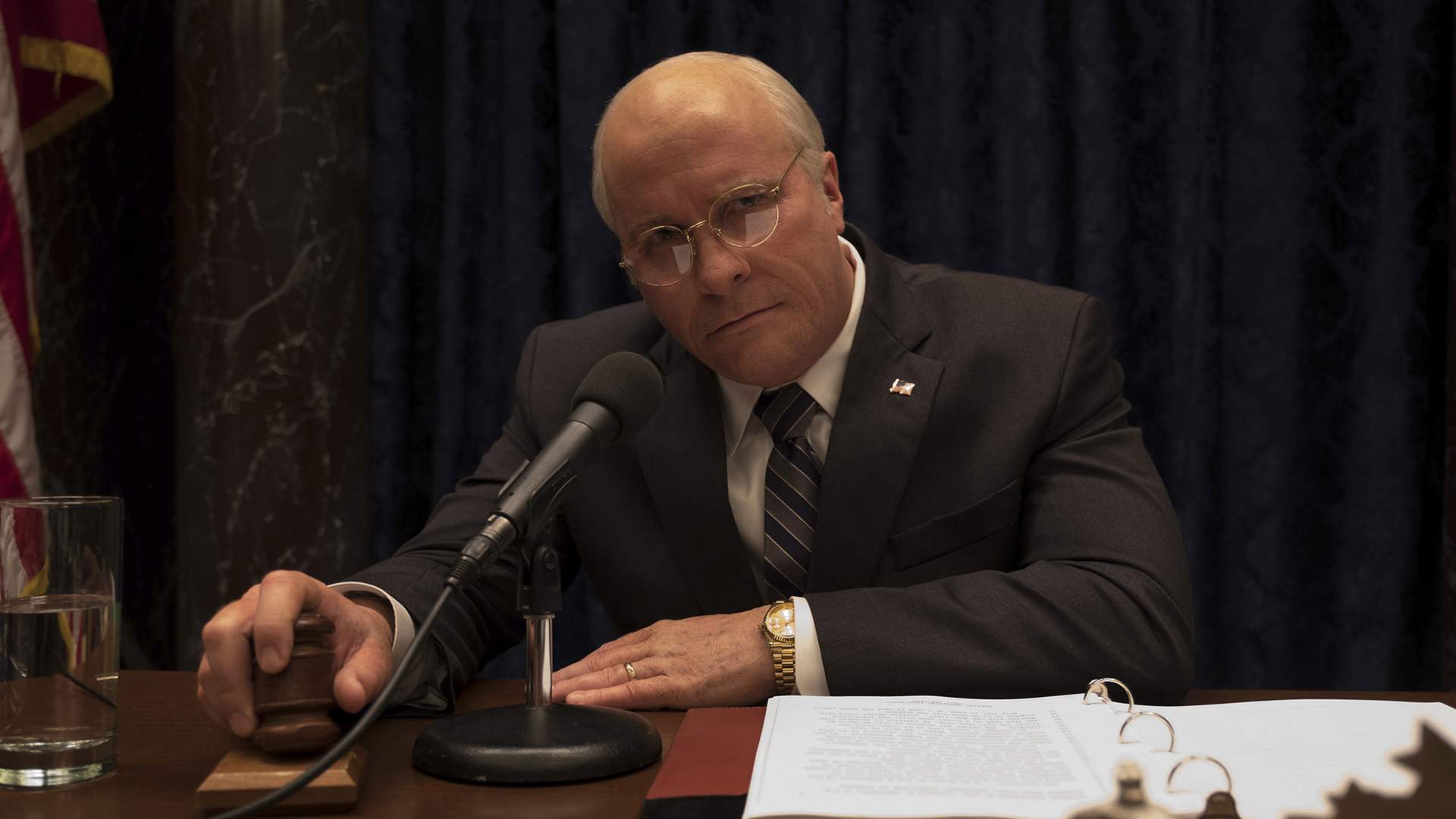Vice
Christian Bale is a sight to behold in a political comedy that unfortunately favours style over substance.
Overview
Deploying comedy as a coping mechanism, Vice turns an entire chapter of US history into a joke — of sorts. You could say that the George W. Bush administration achieved that very feat itself, but that's not the gag. Rather, Anchorman, Step Brothers and The Other Guys' filmmaker Adam McKay adopts the "well you might as well laugh" approach. The period spanning 2001 to 2009 was rife with deeds and decisions that still rightfully evoke ire today, so Vice bundles it with humour to explore what really went on. It worked for The Big Short to the tune of an Oscar win and four other nominations, including a best director nod for McKay. But it's nowhere near as effective in the writer-director's similarly topical follow-up.
Honing its gaze not on the famously laidback Bush (Sam Rockwell), but on his Vice President Dick Cheney (Christian Bale), Vice is an entertainingly made picture. Like its predecessor, it's impassioned, irreverent, designed to get audiences angry about both the past and the present, and so stuffed with stylistic tricks that it's almost overwhelming. Sometimes an intermittently seen narrator (Jesse Plemons) delivers insights to viewers. Sometimes text splashes information across the screen in varying fonts. Mid-movie, credits even start rolling over a fake happy ending to satirise standard biopic conventions. The flourishes keep coming, raising a smile each time, including a scene where the government's main players decide how to carve up Iraq by ordering from a menu rattled off by Alfred Molina. Unfortunately, McKay is so busy telling his tale in an amusing, ironic, gimmick-ridden fashion that he forgets to do more than state the obvious.
Seen swigging drinks as a college dropout, then snaking his way through the political ranks, then scheming to expand and consolidate his influence, Cheney is a slippery figure in Vice. Long before he's the Vice, his vice is alcohol — but an ultimatum from his sweetheart Lynne (Amy Adams) puts him on the path to several offices in the White House. His mentor Donald Rumsfeld (Steve Carell) helps, though it's Cheney's ability to work any situation to his advantage that keeps his star rising. Two specific moments seen in the film sum up his evolution. On his first day as a congressional intern, he aligns himself with the Republican party solely because he's impressed with Rumsfeld's buffoonery. Decades later, when asked to become Bush's running mate, he only agrees after ascertaining just how much power he'll be able to usurp.
Ruthless, opportunistic, manipulative and determined to advance his own interests above all else: that's Vice's portrait of Cheney, and it's far from pretty. As portrayed by Bale, however, the Machiavellian figure is a sight to behold. Sporting a hunch and a paunch, speaking in gravelly grunts and side-eyeing everyone around him, the ever-committed actor turns in another transformative performance. Indeed, it's a performance that makes viewers feel as if they know what makes Cheney tick beyond his unspoken lust for control, glory and pulling everyone's strings. With Adams suitably steely as Cheney's wife, Rockwell as loose as a Florida party as Dubya and Carell channelling a smarter, more obnoxious version of The Office's Michael Scott as Rumsfeld, Bale is also in very good company.
Still, Vice doesn't reach the heights that it's clearly aiming for, or those reached by its stars. Spinning a story about a man who fell just short of his country's highest office, that almost seems fitting. There's an air of smugness about the film, which makes many compelling points but does so in much too self-satisfied a manner. And, as engaging as the movie's romp-like style may be, it makes its case in much too cartoonish a manner too. Virtually at the outset, McKay tells the audience that American citizens just don't want to concern themselves with the ins and outs of government, which is partly how the country's political mess came about. And yet, he both points out and perpetuates that exact same idea. A gleeful surface-level examination of Cheney's chicanery, Vice assumes that viewers who didn't already know the details couldn't — and wouldn't — care without the movie's glossy, jaunty packaging.





